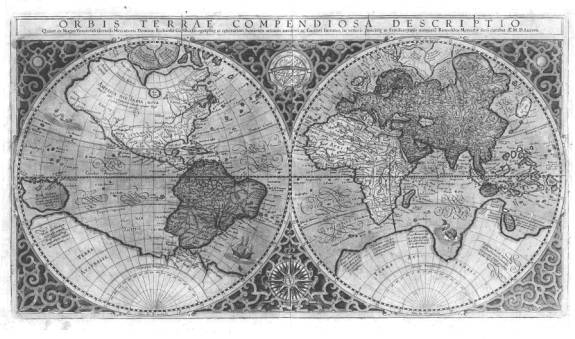LITR 5734:
Colonial & Postcolonial Literature

Sample Student Final Exams 2008
Essay 2: Compose a dialogue between our four novels since the midterm. (Objectives 1, 2, and 3 + others)
Corrie Manigold
Power and Knowledge: A Closer Look at Colonial and Post-colonial Relationships
Throughout the texts in this course, we have seen a number of examples of of cross-cultural relationships. Relationships inherently provide a place for dialogue to take place, and given the dialogue-driven structure of this course, in keeping with Course Objective 2a, the area of relationships seems like a promising place to begin an examination of colonial-post-colonial discourse.
Late in the semester, Jim Steinhilber's dialogue presentation, in which he discussed slavery, was used as a lead-in to Hegel's notion of the master-slave dialectic. Though we stopped only briefly here, I believe the idea is useful, as it focused on the implicit inequality of all relationships. While Hegel's master-slave dialect is somewhat limiting in that it inscribes all people within the dichotomy of master-slave (you are either one or the other, according to this view), its emphasis on the omnipresence of power disparities in social relationships is a crucial point that deserves recognition. I propose that this, taken together with the Michel Foucault's formulation of the power-knowledge complex, (which, simply stated, implies that power produces knowledge, which produces power), Hegel's concept finds a great deal of play in the various texts we have read in this course.
The relationships that Jim raised for examination in his presentation were the cross-cultural ties between Robinson Crusoe's titular protagonist and his slave, Friday, as well as Lucy's title character and her employer, Mariah. Further examples of cross-cultural relationships can be between Aziz and Fielding, in Passage to India, and so also between the Sikh government official, Hukum Chand, and the Muslim girl-prostitute whose services he purchases in Train to Pakistan. While I am reluctant to concede Hegel's notion that each character should fall neatly into the two oppositional categories of either master or slave, one readily observes that in these examples that power and power disparity plays a significant role—though sometimes in subversion of expectations.
Of all the above offered examples, the relationship between Crusoe and Friday most typifies the master-slave paradigm posited in Hegel's dialectic. Also fitting well with Foucault's model of the power-knowledge complex, Crusoe comes to 'own' Friday largely due to the superiority of his knowledge (he has gathered knowledge of the cannibals, while remaining himself unknown to them) and his technology (Friday is awed at the capabilities to kill from great distances).
In this colonial novel, Friday is treated as one might expect a native man to be typically treated; He is both romanticized and rendered near-mute. Crusoe describes him as “a comely, handsome fellow, perfectly well made” with a “good countenance...very manly in his face” yet having “all the sweetness and softness of an European in countenance, too” (Defoe 162). Though he is a grown man and a warrior, his new master characterizes him as childlike and dependent, noting that he quickly becomes attached to himself with affections “like those of a child to a father” (165). Friday's speech is also is portrayed as something comparable to that of a child, fractured and clumsy, and most notably, only related through the mediation of Crusoe's (strongly biased) first person narrative. All of this is not to claim that no true affection exists between Crusoe and Friday, rather only that the strongest of affections, if indeed present, are undeniably accompanied by the strongest of inequalities in this example of a cross-cultural and literal master-slave relationship.
We see quite another dynamic, altogether, in Lucy, however. While Mariah and Lucy are certainly engaged in a relationship of asymmetrical power relations, by virtue of Lucy's status as servant/employee to Mariah's family, when the component of knowledge is factored in, we can observe a more complex and nuanced picture of the relationship. Lucy's character is startling at first read due to the surprisingly sophisticated voice we encounter in this nineteen-year old woman. Although as the novel commences we are introduced to a defiant and melancholy immigrant who appears at first a rather diminutive force, with the unfolding of the narrative we observe a shifting of power both in Lucy's relationship with Mariah, and so also in a more general sense.
Young, female, and immigrant, it seems that circumstances would naturally fall in opposition to the empowerment of the struggling protagonist, but Lucy is a different kind of heroine belonging to a different time. She finds freedom from the voicelessness plaguing parallel characters such as Robinson Crusoe's Friday or the zeal for British friendship that compromises Aziz in A Passage to India. Unlike these representatives of the colonized world, Lucy remains aloof in her relationship with members of the dominant culture, using both knowledge and space as implements of power.
While she concedes that she has love for Mariah (Kincaid 46), Lucy also observes Mariah and her family keenly, gaining knowledge about her marriage and family life that eludes even Mariah. Though Lucy does not use this knowledge in any overtly strategic or political manner, it does empower her as a character, and particularly so when viewed as a subversion of the master-slave dichotomy. In this way, Lucy is sophisticated, while Mariah is naive. That Lucy has knowledge and chooses not to share could be argued to speak even further to her sophistication and relational aloofness. The result of these circumstances is a shifting power dynamics. Through this, the empowerment of the post-colonial character and the rise of the post-colonial narrative is evinced.
